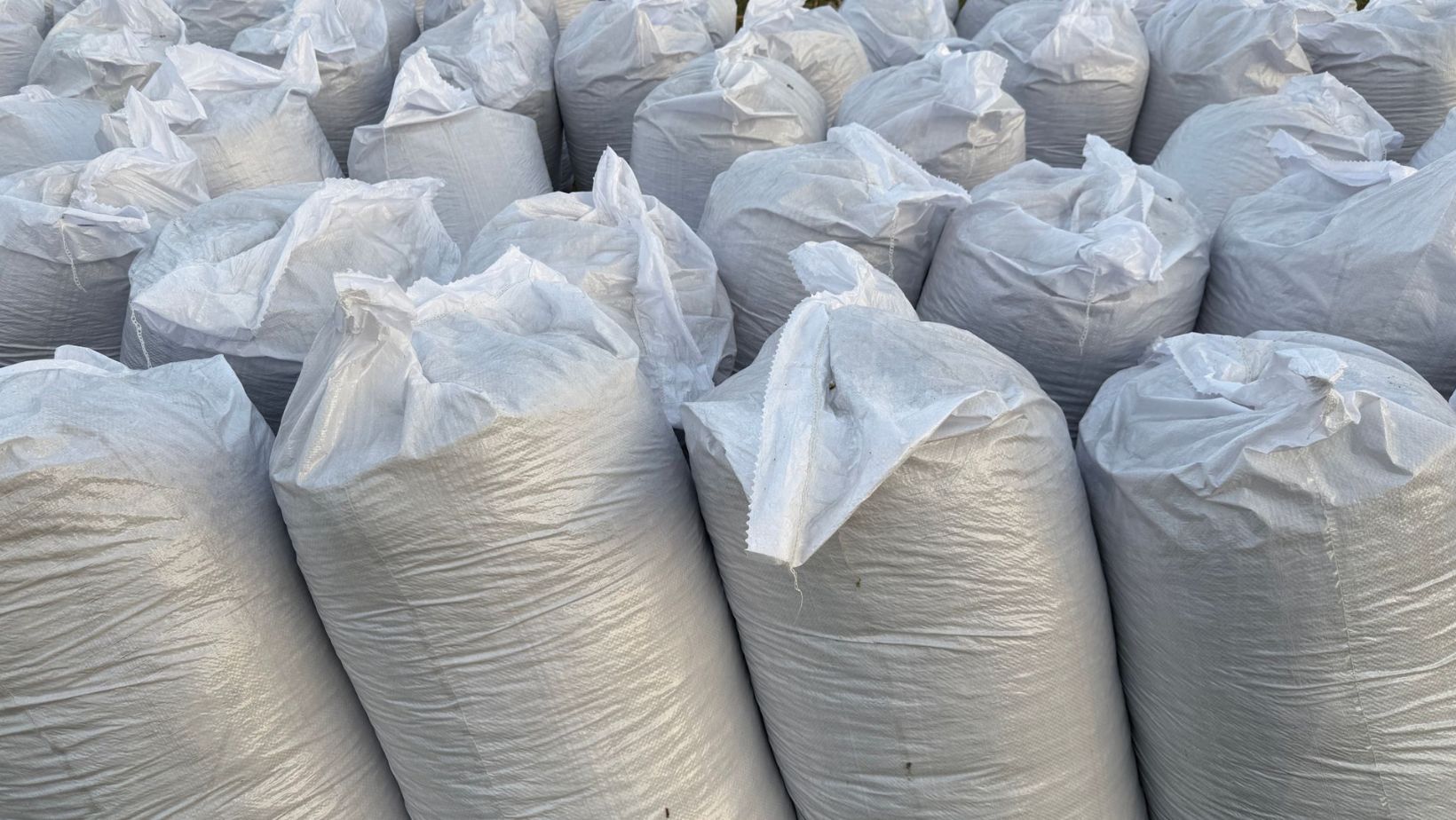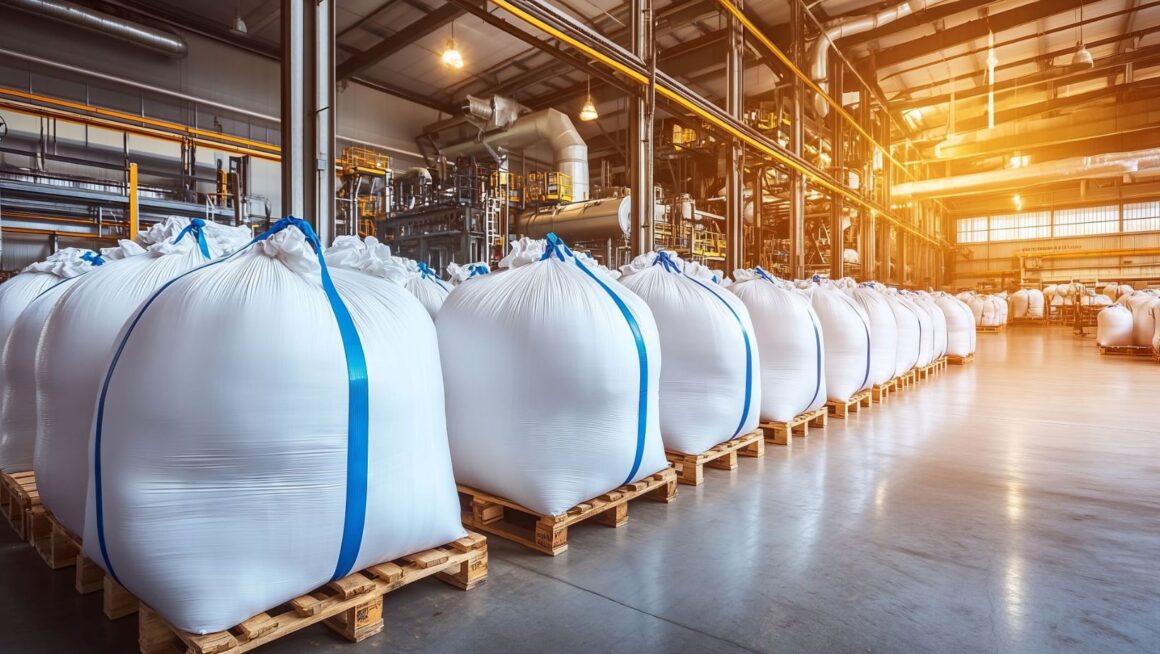As a business executive, you know the importance of efficiency if your venture relies on transporting, storing, or distributing products. When reducing waste or improving storage conditions, packaging can make or break your operations. That’s why many rely on polypropylene bags to enhance their supply chain methods.
These unassuming bags aren’t just packaging tools. They’re versatile, durable, and adaptable for a wide range of products. Understanding how they work can help you unlock numerous logistical benefits.
Why Polypropylene Bags Matter in Supply Chains
Polypropylene (PP) is a thermoplastic polymer resin derived from polymerized ethylene gas, making it strong, lightweight, and highly adaptable. Polypropylene packaging provides strong chemical resistance, improved durability, and a lower oxygen transfer rate, which protects products from spoilage.
For industries dealing with food, chemicals, or agricultural goods, this level of protective value is critical. Think of food and fish bags or animal feed bags. Improperly sealed containers can lead to contamination and financial loss.
Similarly, woven polypropylene sand bags are widely used for stabilizing loads, securing bulk materials, and providing temporary barriers in agriculture and landscaping. Their durability makes them reliable in high-pressure environments where failure isn’t an option.
Switching to polypropylene lets you safeguard products and simplify the entire flow of goods. They’re way better than standard plastic bags, polyethylene bags, or cellophane bags in terms of longevity and versatility.
Tailoring Polypropylene (PP) Bags to Different Needs
Polypropylene bags come in many forms designed for specific needs:
- Gusseted polypropylene bags allow products to expand while maintaining shape, making them ideal for bulk produce packaging.
- Resealable polypropylene bags and reclosable bags are commonly used in food packaging, ensuring freshness with a reliable moisture barrier.
- High clarity polypropylene bags are ideal for retail items, where product visibility enhances customer appeal.
- Vacuum pouches and standup pouches extend shelf life for perishable goods by controlling moisture rate and limiting oxygen exposure.
- Crimp-style polypropylene bags and bags with ties are simple yet effective options for sealing everyday products like a feed bag or small hardware parts.
- Woven polypropylene sand bags can handle soil, gravel, or floodwater without tearing apart, making them indispensable in construction, agriculture, and disaster management.
With these choices, you can easily match the product model, product dimensions, and specific requirements of your goods. That flexibility makes polypropylene a cornerstone of custom packaging.
Durability That Cuts Costs
The beauty of woven polypropylene bags and FIBC bags (Flexible Intermediate Bulk Containers) lies in their strength. Built with structural baffles, corner straps, and reinforced bottom seal or side seal, they can handle heavy-duty products without tearing.
A polypropylene core provides rigidity while still maintaining flexibility. For industries transporting grains, cement, or chemicals, this durability reduces the risk of spillage, repackaging, or product loss.
Compared to traditional sacks, these bags resist punctures, provide grease and oil resistance, and remain stable in humid conditions. Robustness translates into fewer supply chain problems, less waste, and lower costs.
Innovation Through Advanced Production Techniques
Polypropylene continues to dominate due to advanced production techniques implemented across plastic bag factories. Using thermoplastic polypropylene, manufacturers can design polypropylene sheets and later turn them into polypropylene bags with handles, or specialized bottom gusset bags.
Modern methods allow for custom packaging with branding, logos, and instructions, turning a simple container into a marketing tool. For fragile goods, protective value is enhanced through layered construction, ensuring your items reach customers intact.
Moreover, many factories are now experimenting with biodegradable bags. These alternatives aim to reduce the environmental impact of single-use plastics, making them an eco-conscious option for companies committed to sustainability.
Streamlining Through Flexible Packaging
In today’s fast-moving markets, speed and adaptability are everything. Flexible packaging, such as standup pouches, bottom seal bags, and reclosable bags, provides exactly that. They’re lightweight, easy to transport, and reduce storage space compared to rigid containers.
For instance, manufacturers simplify bulk produce packaging with gusseted bags that stack neatly and expand when filled. Likewise, food packaging benefits from the balance of durability and convenience offered by vacuum pouches and resealable polypropylene bags. These options keep products fresh and allow for consumer-friendly reusability.
In supply chains where space and time are limited, this adaptability translates into faster handling, fewer errors, and better delivery schedules. Ultimately, this type of packaging plays a direct role in achieving a more efficient supply chain management, ensuring your business saves both time and resources.
Handling Carried Goods With Efficiency
Polypropylene offers unmatched versatility, whether you’re transporting sandbags, animal feed bags, or fragile consumer items. A PP bag with handles makes it easier to move carried goods in warehouses or retail stores. Meanwhile, large-scale FIBC bags are designed for industrial loads, often equipped with corner straps for secure lifting.
Even something as small as bags with ties can streamline operations by saving workers time during packing. Each detail, from feed bag closure to side seal, contributes to a smoother workflow and better use of the workforce.
The Bottom Line: Smarter Supply Chains With Polypropylene
Your supply chain depends on packaging that is tough, flexible, and efficient. Choosing polypropylene bags means you’re getting a solution tailored to your product’s exact needs. Every design serves a purpose, from high clarity polypropylene bags for retail appeal to woven polypropylene sand bags for construction, and standup pouches for food.
The combination of strength, chemical resistance, and innovative formats means fewer damaged goods, faster operations, and lower costs. Plus, with the move toward biodegradable bags, you can reduce your environmental impact while keeping efficiency high. At the end of the day, streamlining your logistics is all about moving them smartly, and embracing polypropylene lets you do that.

